’21 Honoree Katy Kelly

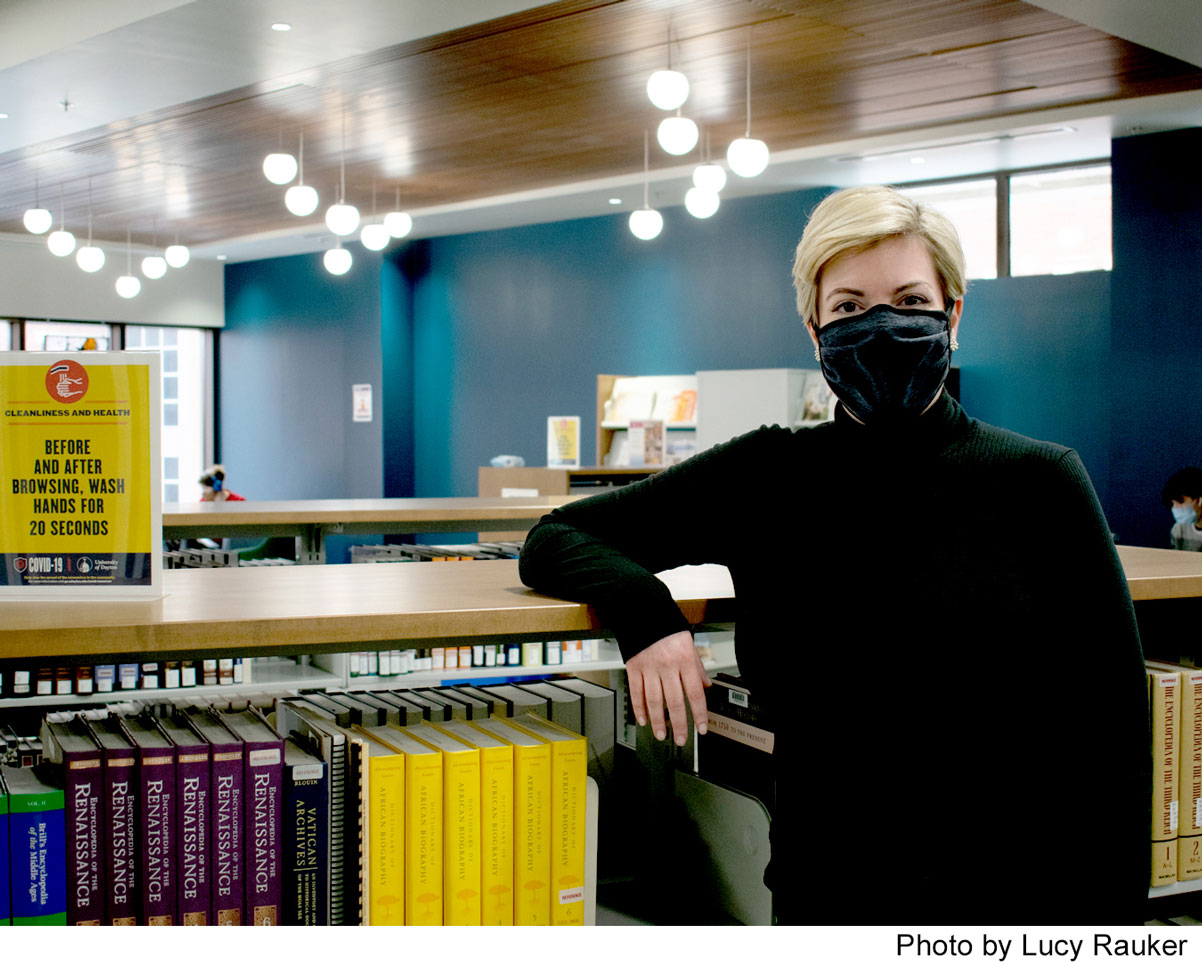
“I was meeting with a student about a research project, and I remember the student said he was planning on going to the Malawi program. He was worried he might not get to go, but also worried because he had an internship lined up for the summer. He and I had such hope this pandemic would all be figured out by April, and that everything would take care of itself over our extended Spring break. Then, I remember thinking of the calendar, because I do a lot of event planning and marketing, and again thinking, ‘we'll do what we’ve always done. We’ll pick it right back up when we’re all back together again, after this extended Spring break, and it will be fine.’ I had no idea.”

“I was meeting with a student about a research project, and I remember the student said he was planning on going to the Malawi program. He was worried he might not get to go, but also worried because he had an internship lined up for the summer. He and I had such hope this pandemic would all be figured out by April, and that everything would take care of itself over our extended Spring break. Then, I remember thinking of the calendar, because I do a lot of event planning and marketing, and again thinking, ‘we'll do what we’ve always done. We’ll pick it right back up when we’re all back together again, after this extended Spring break, and it will be fine.’ I had no idea.”
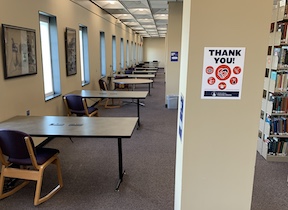
“When we realized that the students were not coming back, we knew we had to bring service to students where they were. Dean Kathy Webb set a bar for us to focus on how we can provide the best service possible. How do we prioritize what we would normally be doing and then how do we pivot it? If that meant a student in Colorado needed research help, well, that meant that we were going to be available until 8:00 PM Eastern to accommodate the different time zones. The building itself was closed when campus was closed, but we were one of the few academic libraries in Ohio that still had a period of time where people could pick up books and materials on Friday, contactless pickup, and that was very unusual.”

“When we realized that the students were not coming back, we knew we had to bring service to students where they were. Dean Kathy Webb set a bar for us to focus on how we can provide the best service possible. How do we prioritize what we would normally be doing and then how do we pivot it? If that meant a student in Colorado needed research help, well, that meant that we were going to be available until 8:00 PM Eastern to accommodate the different time zones. The building itself was closed when campus was closed, but we were one of the few academic libraries in Ohio that still had a period of time where people could pick up books and materials on Friday, contactless pickup, and that was very unusual.”
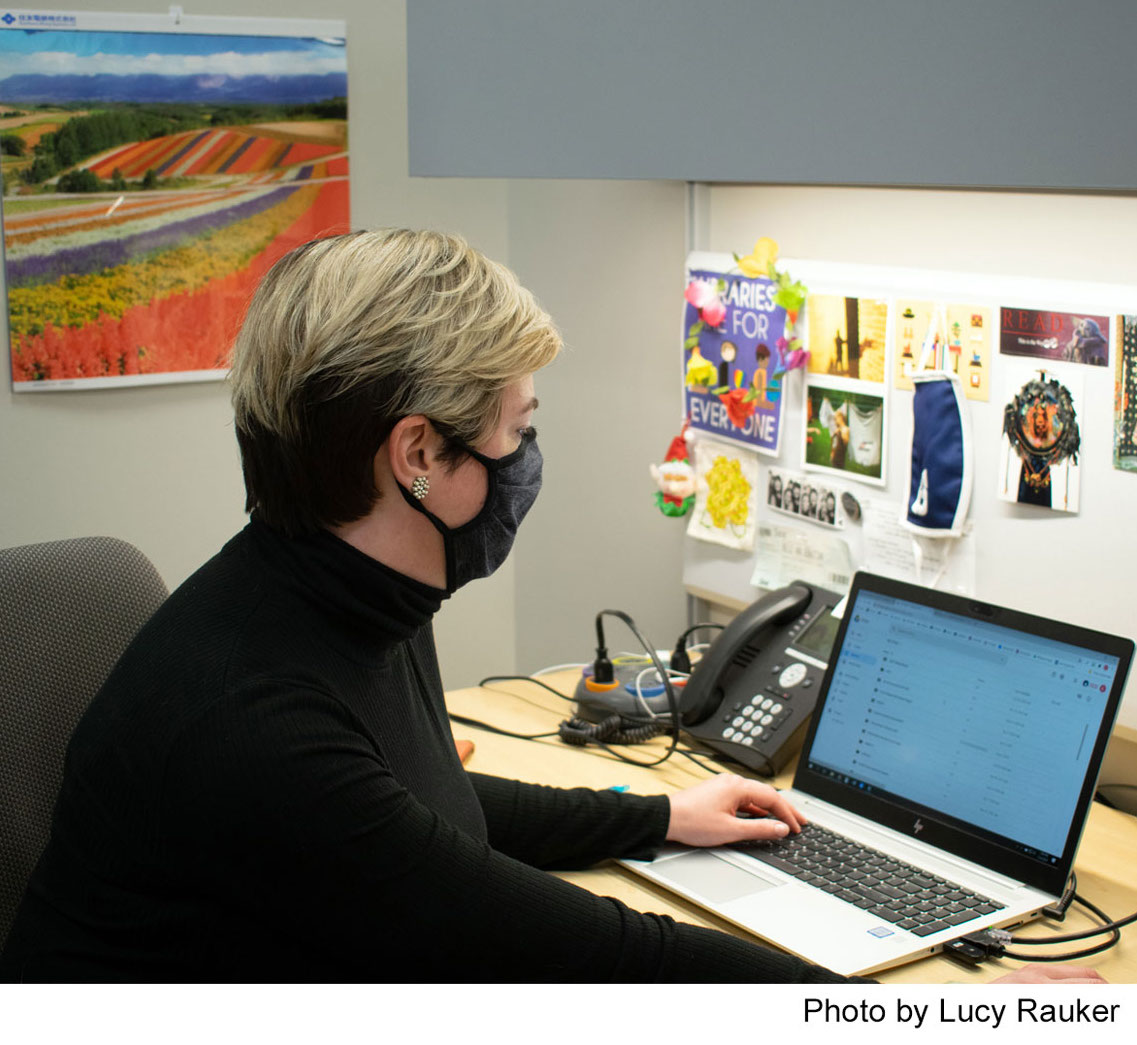
“I was also co-chair of the Stander Symposium. We had to figure out how we were going to pivot this online. It was kind of serendipitous that I was co-chair and also part of the library, because we used the library’s eCommons platform to host Stander. In retrospect, it feels like things are always working out, but it took a lot of care and consideration to reach people, from all over, through our computers instead of being on campus. Pre-pandemic, a student would physically come to the library for research help. They would meet one-on-one with a librarian in the librarian’s office, or at a table out in the library. We would most likely be sitting next to each other with our laptops open, and brainstorming their topic, thinking about different keywords and different databases to use, to find the best articles.”

“I was also co-chair of the Stander Symposium. We had to figure out how we were going to pivot this online. It was kind of serendipitous that I was co-chair and also part of the library, because we used the library’s eCommons platform to host Stander. In retrospect, it feels like things are always working out, but it took a lot of care and consideration to reach people, from all over, through our computers instead of being on campus. Pre-pandemic, a student would physically come to the library for research help. They would meet one-on-one with a librarian in the librarian’s office, or at a table out in the library. We would most likely be sitting next to each other with our laptops open, and brainstorming their topic, thinking about different keywords and different databases to use, to find the best articles.”
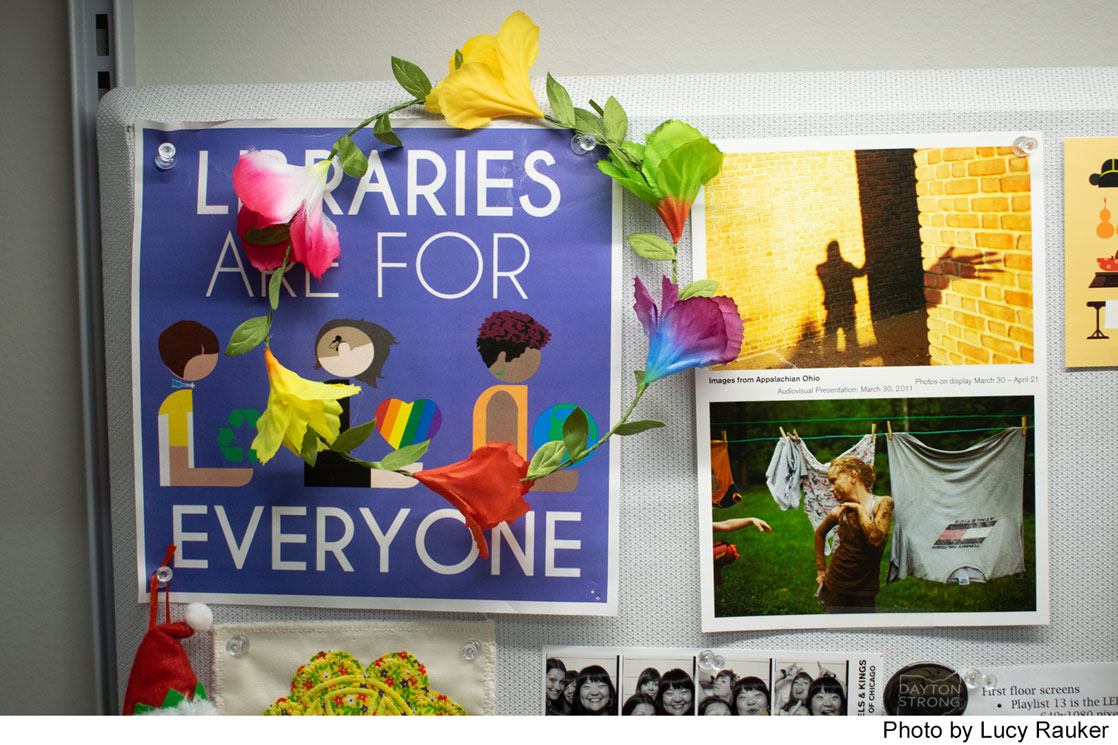
“If they needed a book, we would look it up in the catalog, and then I would share the elevator with them and go up to the stacks. We would find the book together, and then I would bring them back down. They would check the book out and then maybe they would go and find a group of friends to study with in the library.”

“If they needed a book, we would look it up in the catalog, and then I would share the elevator with them and go up to the stacks. We would find the book together, and then I would bring them back down. They would check the book out and then maybe they would go and find a group of friends to study with in the library.”
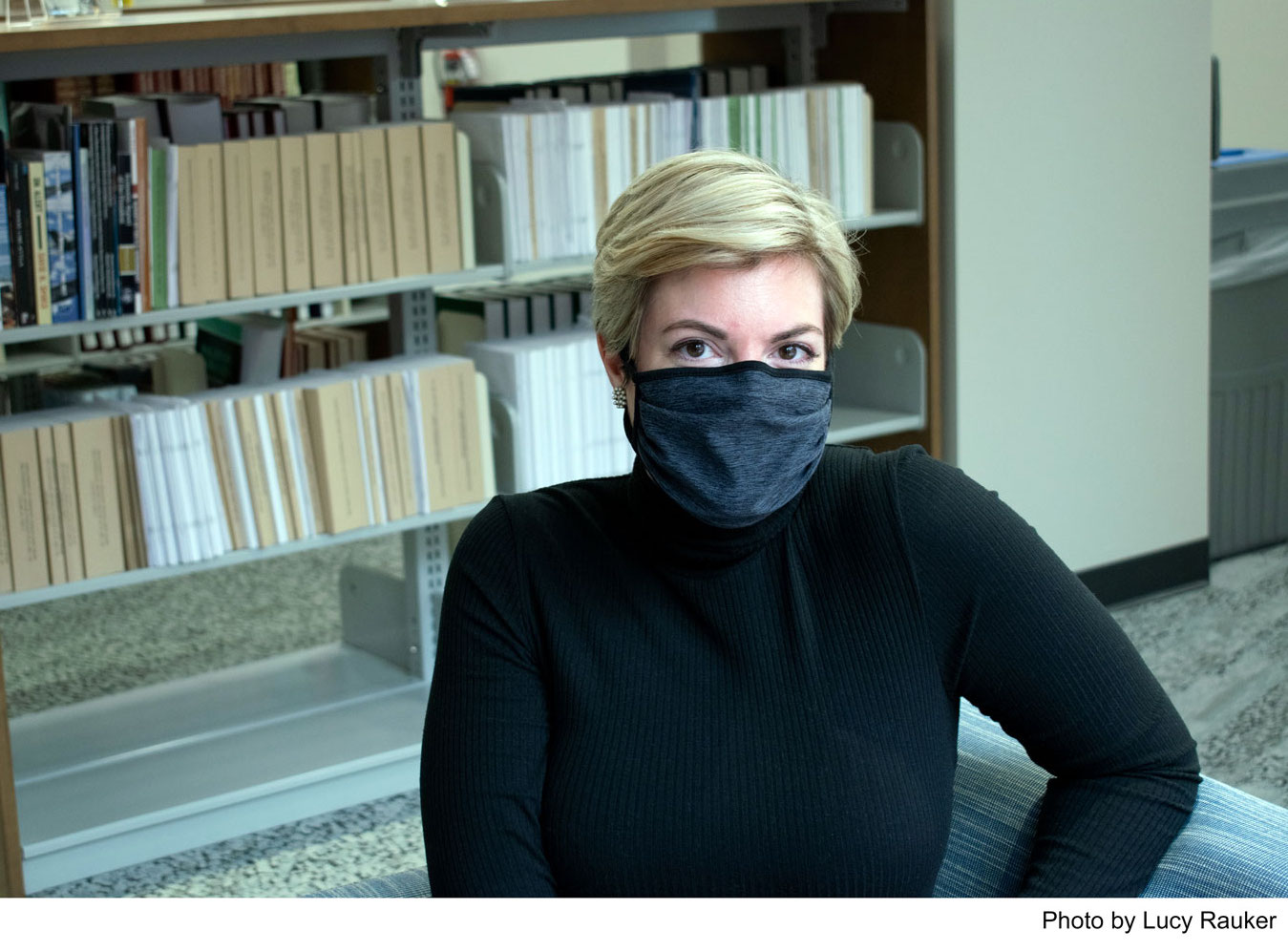
“But now during the pandemic, if a student wants help with a research project, they book an appointment online or they can meet with a librarian on call virtually, through the phone or Zoom. Usually we use the share screen function and show a student some of the strategies we would suggest. And if they need a book, we try our best to point them in the right direction – what floor to go to and what row – and tell them a little bit about how to check out that book, or tell them about our request feature and how they can request the book, and then pick it up in a contactless way.”

“But now during the pandemic, if a student wants help with a research project, they book an appointment online or they can meet with a librarian on call virtually, through the phone or Zoom. Usually we use the share screen function and show a student some of the strategies we would suggest. And if they need a book, we try our best to point them in the right direction – what floor to go to and what row – and tell them a little bit about how to check out that book, or tell them about our request feature and how they can request the book, and then pick it up in a contactless way.”
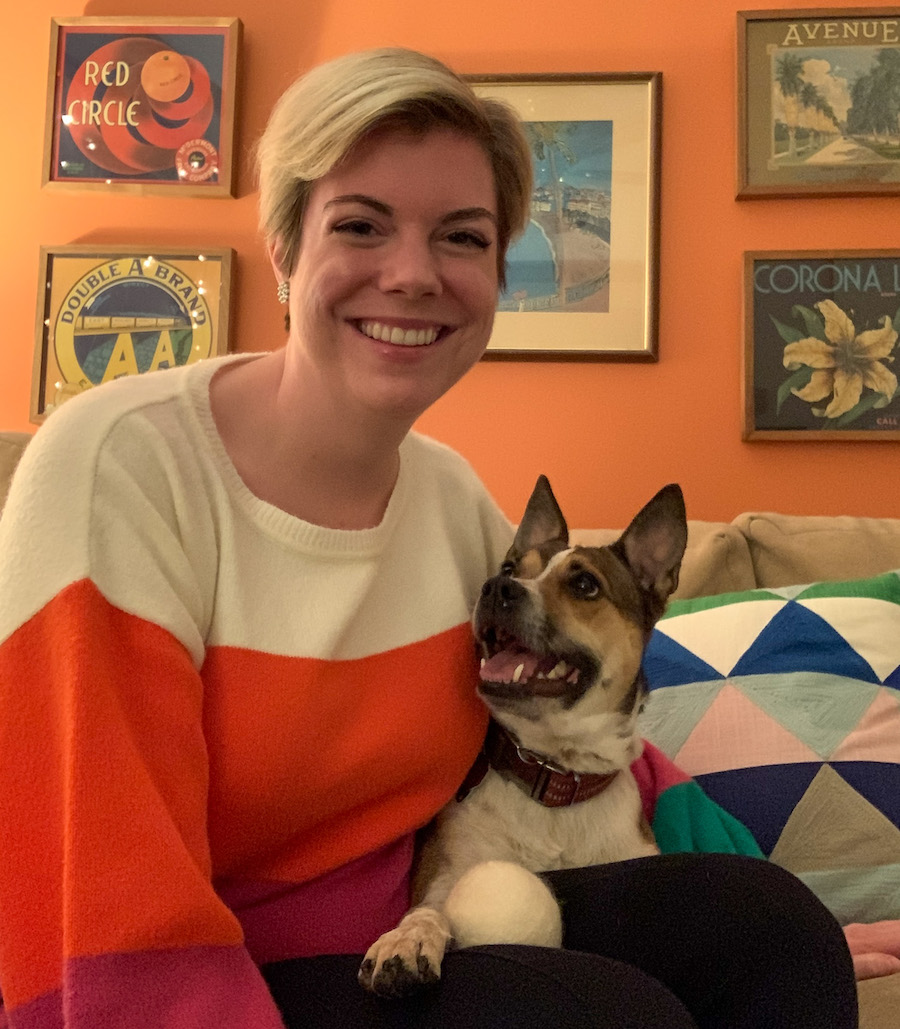
“So we are trying to make students feel that we’re here with them physically. But from the student perspective, I think some seem to be Zoomed out. They just want to talk to a person. It’s been so isolating. I’ve been isolating myself for a year. We’re working from home, and I live alone. So my dog, Cindy, is my only distraction, I guess. I haven’t been to a restaurant in a year. I haven’t been face-to-face with my friends. That of course can be pretty heavy, but I feel like I’ve been able to learn new ways of self-care that just involve what I have access to and what I have here in my house. And that has really helped a lot. I’ve tried to have a level of protection of myself – not just physically, but also emotionally – from not only the pandemic, but the unrest in the world. We’ve had a lot of political uncertainty and I felt ‘what can I do?’ That question can be haunting. It just seemed like there were a lot of important things that came up during the pandemic, one on top of the other, and there was just always a question of ‘am I doing enough for others?’ ”

“So we are trying to make students feel that we’re here with them physically. But from the student perspective, I think some seem to be Zoomed out. They just want to talk to a person. It’s been so isolating. I’ve been isolating myself for a year. We’re working from home, and I live alone. So my dog, Cindy, is my only distraction, I guess. I haven’t been to a restaurant in a year. I haven’t been face-to-face with my friends. That of course can be pretty heavy, but I feel like I’ve been able to learn new ways of self-care that just involve what I have access to and what I have here in my house. And that has really helped a lot. I’ve tried to have a level of protection of myself – not just physically, but also emotionally – from not only the pandemic, but the unrest in the world. We’ve had a lot of political uncertainty and I felt ‘what can I do?’ That question can be haunting. It just seemed like there were a lot of important things that came up during the pandemic, one on top of the other, and there was just always a question of ‘am I doing enough for others?’ ”
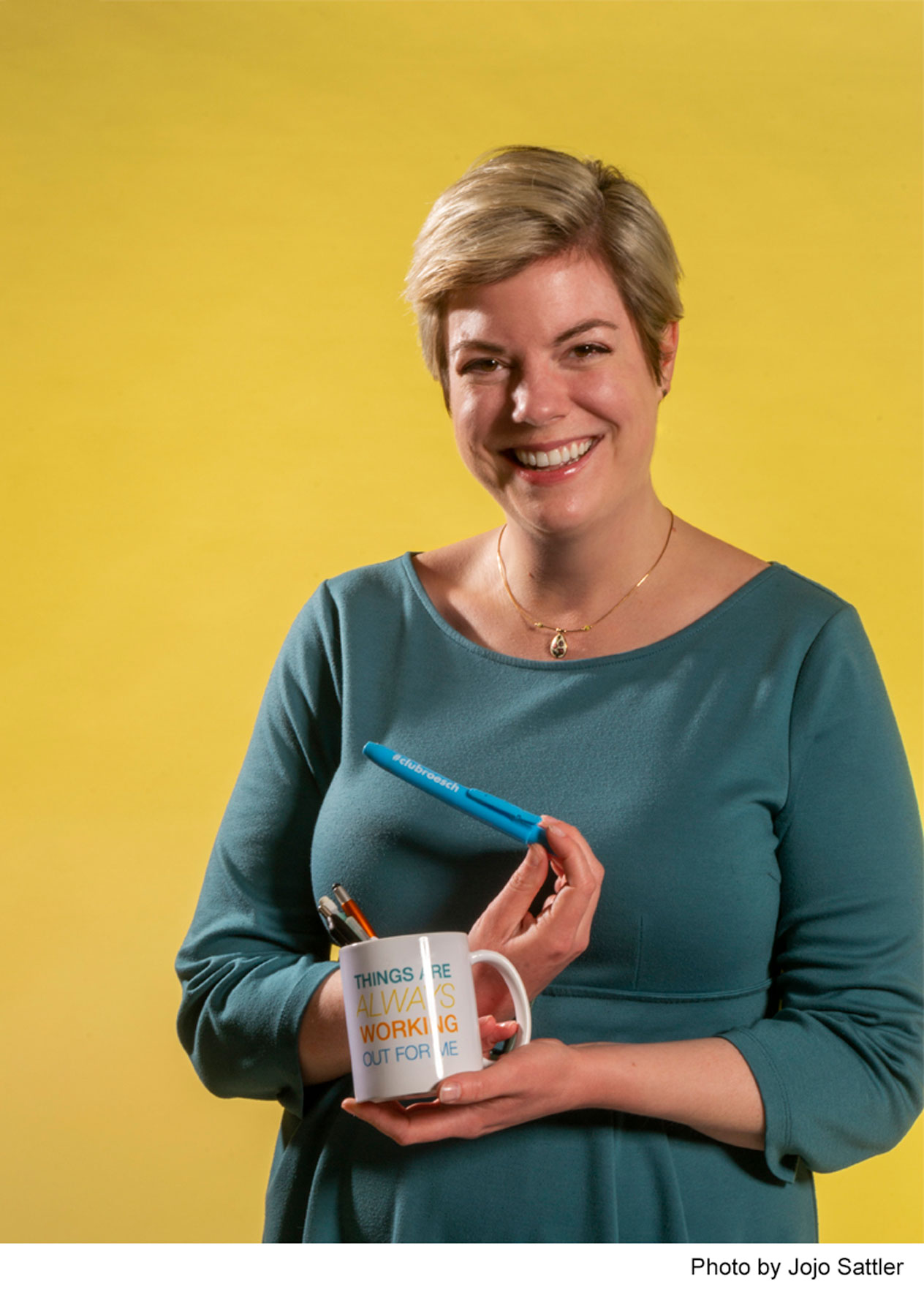
“I think there was a lot of pain and shifting and figuring things out. It took so much brain power trying to figure out what's being expected of me. Am I living up to those expectations? Other things that happened, personal things, felt so devastating and it just felt like the end of the world. I couldn’t sleep and I couldn’t eat. Now I look back on it and see I actually learned so much and I’ve been able to move on. The only way is through, right? If you are negative about it, you’re putting up barriers. I just try to move positively through things like this, take a lot of time for self-reflection, and think about my gratitude and intentions for the week ahead. I definitely think I’ve been able to grow into a better balance and have a much better perspective on all of those questions. I don’t think everything is answered, but I feel comfortable with the answer that I am capable of providing. I pride myself on being a positive person and it does make me feel proud that I’ve been able to adapt in this way. A very close friend gave me a coffee mug that says ‘Things are always working out for me.’ This phrase makes me feel like no matter what happens, I’m on a path that I’m supposed to be.”

“I think there was a lot of pain and shifting and figuring things out. It took so much brain power trying to figure out what's being expected of me. Am I living up to those expectations? Other things that happened, personal things, felt so devastating and it just felt like the end of the world. I couldn’t sleep and I couldn’t eat. Now I look back on it and see I actually learned so much and I’ve been able to move on. The only way is through, right? If you are negative about it, you’re putting up barriers. I just try to move positively through things like this, take a lot of time for self-reflection, and think about my gratitude and intentions for the week ahead. I definitely think I’ve been able to grow into a better balance and have a much better perspective on all of those questions. I don’t think everything is answered, but I feel comfortable with the answer that I am capable of providing. I pride myself on being a positive person and it does make me feel proud that I’ve been able to adapt in this way. A very close friend gave me a coffee mug that says ‘Things are always working out for me.’ This phrase makes me feel like no matter what happens, I’m on a path that I’m supposed to be.”
